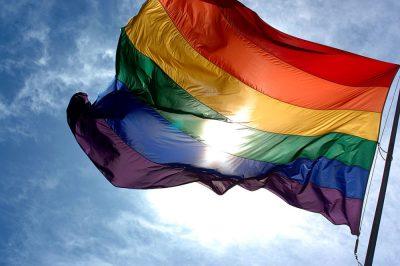
Boston’s Pride parade is coming back this June after a three-year hiatus and the dissolution of the original organizational entity after exclusivity issues.
Pride Month will be celebrated in the Boston Common and City Hall Plaza on June 10 to 11. This year, festivals, block parties and the hallmark parade will be arranged by Boston Pride for the People, a new organization that began planning the event in September 2022, said Jo Trigilio, vice president of Boston Pride for the People.
The new parade will replace Boston Pride, the former organizers who faced allegations of racism and transphobia. Outrage peaked when the board removed “#blacklivesmatter” from a statement originally written by the volunteer workforce, according to pride4thepeople’s website.
“The resigned Volunteer Workforce, along with LGBTQ community leaders of color, demanded the current Pride Board step down, and proposed a transition plan to diversify the board and rewrite the bylaws to include power sharing, checks and balances, and transparency. The Board refused,” the website wrote.
Last year, members of the community held Pop-Up Pride, a smaller-scaled, grassroots festival that sought to reclaim Pride and serve the entirety of the LGBTQ+ community. Now, with the formation of Boston Pride for the People, these efforts are being continued in a larger, long-term iteration.
“We’re a brand new organization, we’re starting completely from scratch,” Trigilio said. “One of the first things we did when we got together is we talked about our vision and our mission and our values … we are all really committed [to] creating a community-centered Pride.”
Trigilio said being community-centered means listening, attending and responding to community voices, which they consider an ongoing process. It also means making Pride a place for everyone.
“We’re being really intentional about racial inclusion, trans inclusion, inclusion of people with disabilities,” Trigilio said.
Boston Pride for the People partners with community groups, plans cultural programming that features QTBIPOC voices, and will shorten the parade in hopes of expanding accessibility.
However, Trigilio said they think there is always more work to be done.
“I think of inclusion as an ideal,” Trigilio said. “So it’s something that you strive toward always, you’re never done, you’re always learning … I see inclusion as an ongoing project.”
Adrianna Boulin, the president of Boston Pride for the People, said their current organizing committee includes people throughout the LGBTQ+ community.
“We’re ensuring everyone’s at the table,” Boulin said. “[But] we’re also humble in our approach, so, although we have a lot of people at the table, we understand the table can always grow.”
Boulin also explained that the organization made a $750,000 fundraising goal to create the necessary infrastructure to hold an event like this for the first time.
“It’s a large-scale event that attracts over a million individuals to Boston in a weekend, where it’s not a space that many people come to the area normally,” Boulin said. “Due to the scale of the event, and what’s needed to maintain such an event in two locations safely, there’s a lot of resources needed to make that happen.”
More information will come out in the coming months about what the programming will look like, and what organizations they will be partnering with.
“I’m really excited that somebody new has taken the helm,” said Gaby Tovar, a sophomore at Boston University. “I think that’ll be positive, [and] I think intersectionality is coming a lot more into conversation.”
Tovar is a part of Shades at Boston University, a student-run organization for LGBTQ+ students of color. They remembered their first Pride, which they reflect on as a moment of discovery and community.
“[Pride is] definitely a celebration, but I also think it’s a very good reminder of the way the queer community has suffered and continues to suffer in this country,” Tovar said.
Jada Daley, a sophomore at Boston University and another member of Shades, agreed that Pride is a place for celebration.
“[It] shows that no matter what you look, how you look like, who you love, who you like, there’s areas where we’re able to just celebrate our joy and pride and happiness,” Daley said. “It’s a step. It’s not the best step, but it’s a step.”
Boulin said that the importance of Pride is in its visibility and representation.
“I think about the individual who has … access to actually be at the parade. I think about the individual who catches it on YouTube, maybe they can’t for some reason [be there]. But being able to connect to that visibly happening, to see a representation of themselves living loudly, proudly, can do so much,” Boulin said.
Trigilio said Pride coming back is important simply because people miss it.
“People have been talking a lot about how some young people haven’t been to their first Pride yet,” Trigilio said. “But I’ve also been hearing that a lot of older people … they also miss Pride. There’s so many people in the LGBTQ+ community that miss Pride.”






















































































































